6 Trade Promotion Best Practices for Snack Brands
6 Trade Promotion Best Practices for Snack Brands
6 Trade Promotion Best Practices for Snack Brands
28 Jul 2022
John McCurdy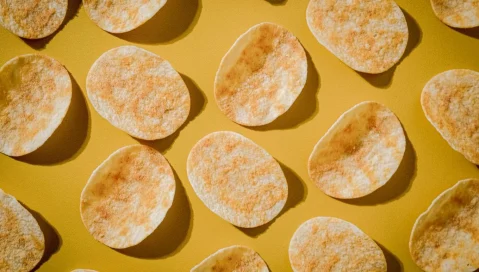
When shoppers peruse the snack aisle at their local supermarket, they’re inundated with options to consider and choices to make. Sweet or salty? Variety pack or one favorite flavor? Jumbo-sized bag or individual, single-serve packages?
To position your business’s products for success, you have to cut across all this noise and demonstrate not just the superior quality of your items but also the value for money of your offerings. One of the ways to attract consumers in this regard is by using trade promotions—that is, marketing campaigns and strategies that you deploy in tandem with the retailers that carry your goods.
That being said, randomly applied discounts and one-off sales gimmicks are unlikely to gain you any ground on your competitors. In order to really rise to the top of the snack segment, you’ll need a cohesive and deliberate approach to promotions that satisfies the needs of the sales outlets you work with while also exciting and delighting potential customers.
To help you devise the right strategy, we’ve put together a list of six trade promotion best practices in the snack sector, as well as some advice on leveraging purpose-built technology to improve your chances to realize the results you want. Let’s dive in.
1. Don’t Default to Bonus Packs
Bonus packs—or additional quantities of products offered in packages for “free”—have been used for some time with varying results. While in some scenarios they can attract new users based on the value they offer, they also come with some tricky implications when it comes to your organization’s production capacity, warehousing, shipping and packaging.
Better alternatives that serve the same purpose as bonus packs include percentage discounts, buy-one-get-one (BOGO) and coupons. The last of those is particularly good for encouraging “stickiness”—after all, a customer with a coupon is more likely to return and use that coupon to purchase more of your products, and they’ll feel rewarded for doing so when they save money.
2. Loyalty Programs Aren’t Perfect
Loyalty programs continue to be quite popular, with many retail grocery chains in the U.S. implementing their own models and gathering a following based on the benefits offered. As a snack manufacturer, though, you should be wary of this tactic and apply scrutiny when evaluating how effective it could be given your situation.
That’s because, first and foremost, loyalty programs attract fickle and price-conscious shoppers—not the type who consistently stick with a single favorite brand, but instead the sort who shop around to get the most bang for their buck. They also require a significant internal effort in order to maximize their utility, as you’ll need a means for tracking the data of your program members and extracting actionable insights from it.
3. Set POP Display Prices Low
Point-of-purchase (POP) displays—frequently configured as cardboard or wire stand-ups near aisle caps and cash registers—can catch the eye of consumers and encourage them to make impulse buys. Snacks are among the most display-sensitive food products there are, as they’re typically small purchases easily justifiable in the moment.
There’s a limit to that, though, and it’s the price point of the item. According to Nielsen research, any snack above $5 is considered “expensive,” and is therefore associated with a greater level of risk should it fail to meet the shopper’s expectations. Set your POP display prices low, and shoppers are more likely to feel like they can indulge on the spur of the moment at little to no cost.
4. Everyone Loves Free Samples
Few things are more tantalizing than a tray of goodies to which customers are actively invited to help themselves. Whether they’re looking to try before they buy or just taking a taste out of curiosity or to break up the monotony of another shopping trip, the appeal of being able to grab what you want at no cost is clear.
Offering free samples is likely to pay off for your snack business because of the instinct that most people have to reciprocate generosity. While the cost of a few chips or mini candy bars will be minimal for your company, consumers are likely to feel like your brand has done them a favor, and they’ll be more inclined to return it by purchasing your goods when they’re next in need.
5. Test, Evaluate, Iterate and Adjust
No trade promotion approach will be perfect from the get-go. You’ll need to collect data on how well your various tactics perform and weigh the additional revenue that they generate against the expenses associated with deploying them. This way, you can determine whether they need to be scrapped, tweaked for better results or run again as-is.
If one of your promotions doesn’t take off the way you envisioned it would, brainstorm ways it could be improved—perhaps a different position for your POP display or a more enticing percentage off granted to larger purchases. Also work closely with your retail partners and gather what information you can from their sales associates to gauge the level of interaction and excitement generated in-store to optimize your strategy based on buyer behavior.
6. Build Strong Retailer Relationships
Speaking of working with your retail partners, it’s critical that you forge strong relationships with them if you want your trade promotions to succeed. Always keep in mind that as much as this method of marketing helps boost your sales, it should also benefit the stores that carry your goods—otherwise, they won’t be as amenable to the different tactics you try to leverage.
An important consideration that will vary from retailer to retailer is the local community. In small towns, more interactive promotions like free samples and loyalty programs could have better results thanks to the slower pace of life and smaller, close-knit community. On the other hand, supermarkets in large metropolises might be better suited for percentage discounts and POP displays that allow on-the-go customers to make quick decisions based on in-the-moment impulses.
Taking Advantage of Technology for Trade Promotion Success
Trade promotions can be a “win-win” in that they help both your business and your retailers as well as end consumers. If you’re excited to put some of the best practices here in play for your company, though, you need to make sure you’re prepared from a technological standpoint first.
If your snack manufacturing business is still using legacy software or a homegrown system—let alone paper records—for the management of your operations, now is the time to jumpstart your digital transformation. The speed at which the larger food and beverage industry moves and shoppers’ preferences shift demands that you have a sound foundation, such as an enterprise resource planning (ERP) solution.
Our ERP for snack manufacturers is a cut above other options on the market thanks to the robust, unique and industry-specific technology we’ve built on top of the Microsoft Dynamics 365 Business Central framework. We can also help keep your business flexible and prepared for the future with a lightweight cloud deployment via a software as a service (SaaS) model.
But you don’t have to take our word for it—we were recently honored with Frost & Sullivan’s prestigious 2022 Product Leadership Award in North American ERP Software for the food and beverage industry, demonstrating our dedication to best practices in client partnerships and system feature development. We’ve also successfully implemented our solution for food and beverage businesses around the world and are actively helping them achieve the results they’re looking for.
So, if you’re ready to hear more about Aptean Food & Beverage ERP and how it can help you successfully leverage trade promotions to boost your snack business’s performance, contact us today. You can also request a personalized demo.
Related Content
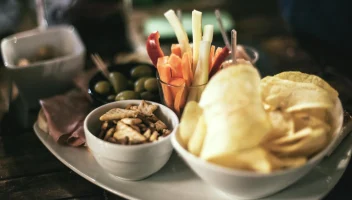
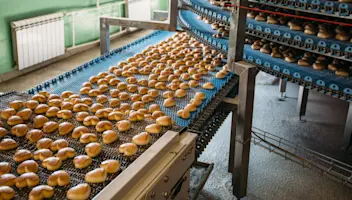

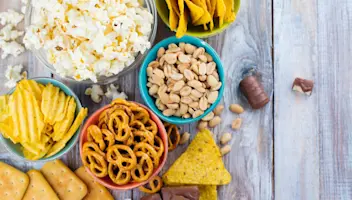
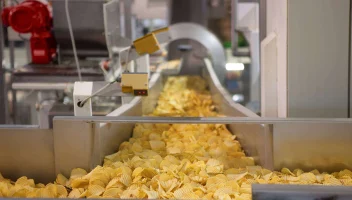
Ready to kick your snack manufacturing operations up a gear?
Aptean’s ERP for snack manufacturers can have a transformative effect on your business—propelling you to the next level.



